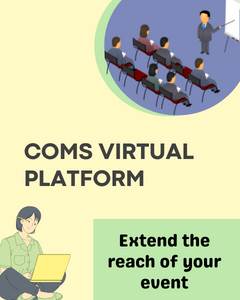Conferences > Mathematics > Geometry and Topology
Select a location
Canada (8) - Germany (9) - Greece (1) - Spain (1) - Sweden (1) - United Kingdom (7) - United States (9)
ALL COUNTRIES (36)
1
Workshop — Analysis and Geometry on Discrete Spaces
07 Oct 2024 - 11 Oct 2027 • Bonn, Germany
Event listing ID:
1623276
2
Dagstuhl-Seminar — Intractability in Discrete Geometry and Topology
15 Mar 2026 - 19 Mar 2026 • Schloss Dagstuhl, Germany
Event listing ID:
1671250
Event website:
3
Tropical Geometry, Moduli Spaces and Locally Symmetric Varieties
16 Mar 2026 - 20 Mar 2026 • Bielefeld University, Germany
Event listing ID:
1682363
Event website:
4
Cluster Algebras, Webs, and Canonical Bases
22 Mar 2026 - 27 Mar 2026 • Banff, Alberta, Canada
Event listing ID:
1668522
Event website:
5
GSTW02 — Geometry of eigenvalues
23 Mar 2026 - 27 Mar 2026 • Cambridge, United Kingdom
Event listing ID:
1684862
Event website:
6
AMS Special Session on Scalar Curvature and Topology
28 Mar 2026 - 29 Mar 2026 • Savannah, Georgia, United States
Event listing ID:
1682582
7
WE-Heraeus-Seminar — Topology and Geometry: Novel Concepts in 3D Quantum Transport on the Mesoscale
29 Mar 2026 - 02 Apr 2026 • Hamburg, Germany
Event listing ID:
1687816
8
Geometric Analysis on Asymptotically Hyperbolic Manifolds
12 Apr 2026 - 17 Apr 2026 • Banff, Alberta, Canada
Event listing ID:
1668607
Event website:
9
GSTW03 — Interactions of geometric spectral theory with numerical methods and applications
13 Apr 2026 - 17 Apr 2026 • Cambridge, United Kingdom
Event listing ID:
1684926
Event website:
10
Regularity in Algebra, Combinatorics, and Geometry
19 Apr 2026 - 24 Apr 2026 • Banff, Alberta, Canada
Event listing ID:
1668628
Event website:
11
GSTW07 — AI in Spectral Geometry, perspectives and directions: the Round Table
20 Apr 2026 • Cambridge, United Kingdom
Event listing ID:
1684969
Event website:
12
Workshop on Poisson geometry
23 Apr 2026 - 26 Apr 2026 • Université de Montréal, Canada
Event listing ID:
1687421
Event website:
13
XX Red Raider Minsymposium on Geometric Analysis and Applications
25 Apr 2026 • Lubbock, Texas, United States
Event listing ID:
1697508
Event website:
14
Applications of Harmonic Analysis to Convex Geometry
26 Apr 2026 - 01 May 2026 • Banff, Alberta, Canada
Event listing ID:
1668561
Event website:
15
GSTW04 — Random and arithmetic models in spectral theory
11 May 2026 - 15 May 2026 • Cambridge, United Kingdom
Event listing ID:
1684989
Event website:
16
Foundations of Computational Geometry and Topology
18 May 2026 - 21 May 2026 • Providence, United States
Event listing ID:
1680173
Event website:
17
HSM Special Topic School — New Mathematical Methods in Geometry Processing
18 May 2026 - 22 May 2026 • Bonn, Germany
Event listing ID:
1687389
Event website:
18
Strings and Geometry 2026
19 May 2026 - 22 May 2026 • Universitetshuset, Uppsala, Sweden
Event listing ID:
1685237
Event website:
19
Machine Computation in Homotopy Theory
22 Jun 2026 - 26 Jun 2026 • Providence, United States
Event listing ID:
1680215
Event website:
20
A Grothendieck type theorem for the quantum projective line
28 Jun 2026 - 12 Jul 2026 • Banff, Alberta, Canada
Event listing ID:
1668736
Event website:
21
Conference — Interfaces of Spectral Theory, Operator Algebras and Noncommutative Geometry
29 Jun 2026 - 03 Jul 2026 • Bonn, Germany
Event listing ID:
1687418
Event website:
22
Workshop — SiMEGG: Structure in Matroids, Embedded Graphs and Graphs
29 Jun 2026 - 03 Jul 2026 • ICMS, Bayes Centre, Edinburgh , United Kingdom
Event listing ID:
1670146
23
NC2W03 — New connections between physics and number theory
13 Jul 2026 - 17 Jul 2026 • Cambridge, United Kingdom
Event listing ID:
1684976
Event website:
24
A Panorama of Quantum Topology - Recent Progress in Quantum Algebra, Low-Dimensional Topology, and Mathematical Physics
19 Jul 2026 - 24 Jul 2026 • Banff, Alberta, Canada
Event listing ID:
1668711
Event website:
25
Toric Topology and Polyhedral Products Collaborative Network
26 Jul 2026 - 31 Jul 2026 • Banff, Alberta, Canada
Event listing ID:
1668754
Event website:
26
Synergies between Geometry, Probability, and Computation in High Dimensions
31 Jul 2026 - 02 Aug 2026 • Providence, United States
Event listing ID:
1680221
27
Gross-Zagier formula 40+ years later
03 Aug 2026 - 07 Aug 2026 • Massachusetts Institute of Technology, Cambridge MA, United States
Event listing ID:
1649539
Event website:
28
Combinatorics and Geometry in Ioannina
02 Sep 2026 - 06 Sep 2026 • Ioannina, Greece
Event listing ID:
1624283
Event website:
29
Spanish-German WE-Heraeus-Seminar — Emergent Topology and Unconventional Order in Quantum Matter
07 Sep 2026 - 10 Sep 2026 • Valladolid, Spain
Event listing ID:
1688097
30
Semester Program — Computations on K3 Surfaces and Related Varieties
09 Sep 2026 - 11 Dec 2026 • ICERM, Providence, RI, United States
Event listing ID:
1649529
Event website:
31
School "Geometric Statistics"
14 Sep 2026 - 18 Sep 2026 • Bonn, Germany
Event listing ID:
1687479
Event website:
32
School — Persistent Homology and Applications in Topological Data
28 Sep 2026 - 02 Oct 2026 • Bonn, Germany
Event listing ID:
1687456
Event website:
33
Israeli-German WE-Heraeus-Seminar — Unifying Aspects of Topology in Quantum and Classical Systems
26 Oct 2026 - 30 Oct 2026 • Physikzentrum Bad Honnef, Germany
Event listing ID:
1688142
34
Cubic Fourfolds, Gushel-Mukai Fourfolds, and Hyperkahler Manifolds
26 Oct 2026 - 30 Oct 2026 • Providence, United States
Event listing ID:
1680296
35
Moduli of K3 surfaces
09 Nov 2026 - 13 Nov 2026 • Providence, United States
Event listing ID:
1680284
36
FHAW02 — Interactions in incidence geometry, Fourier analysis, and geometric measure theory
01 Mar 2027 - 05 Mar 2027 • Cambridge, United Kingdom
Event listing ID:
1685020
Event website:
Conference-Service.com offers, as part of its business activities, a directory of upcoming scientific and technical meetings. The calendar is published for the convenience of conference participants and we strive to support conference organisers who need to publish their upcoming events. Although great care is being taken to ensure the correctness of all entries, we cannot accept any liability that may arise from the presence, absence or incorrectness of any particular information on this website. Always check with the meeting organiser before making arrangements to participate in an event!
Last updated: 18 February 2026




